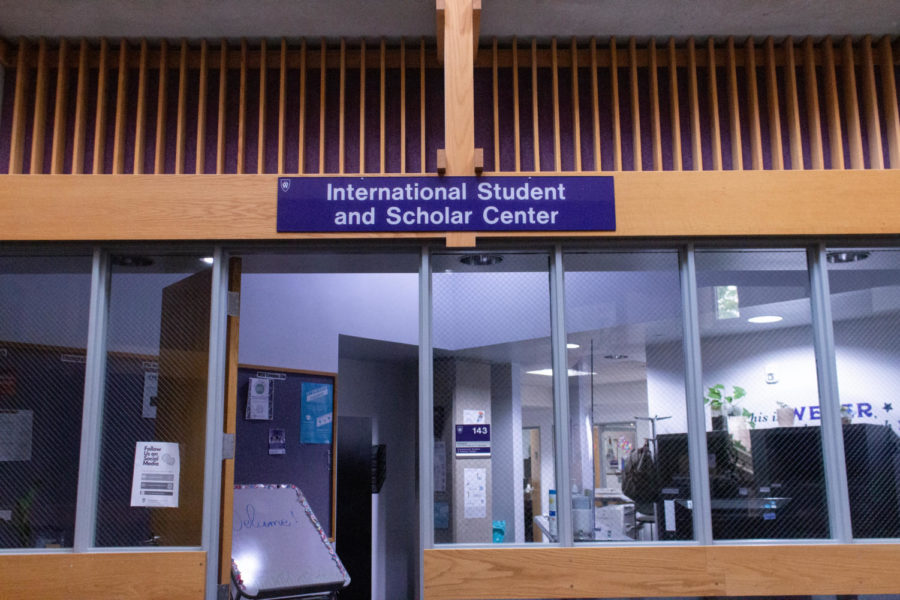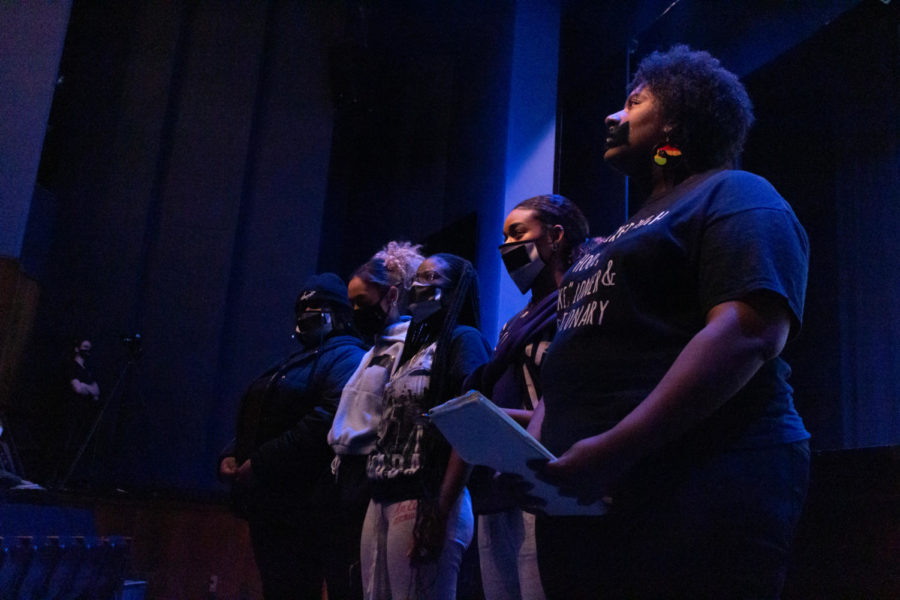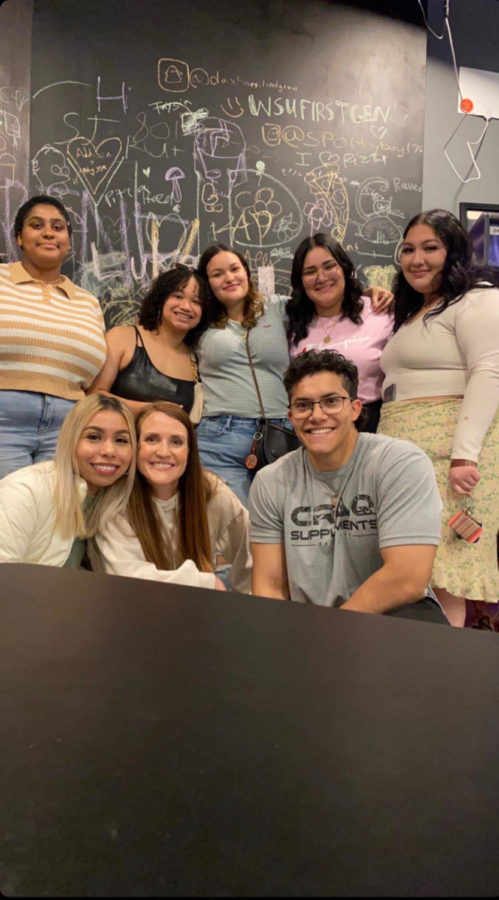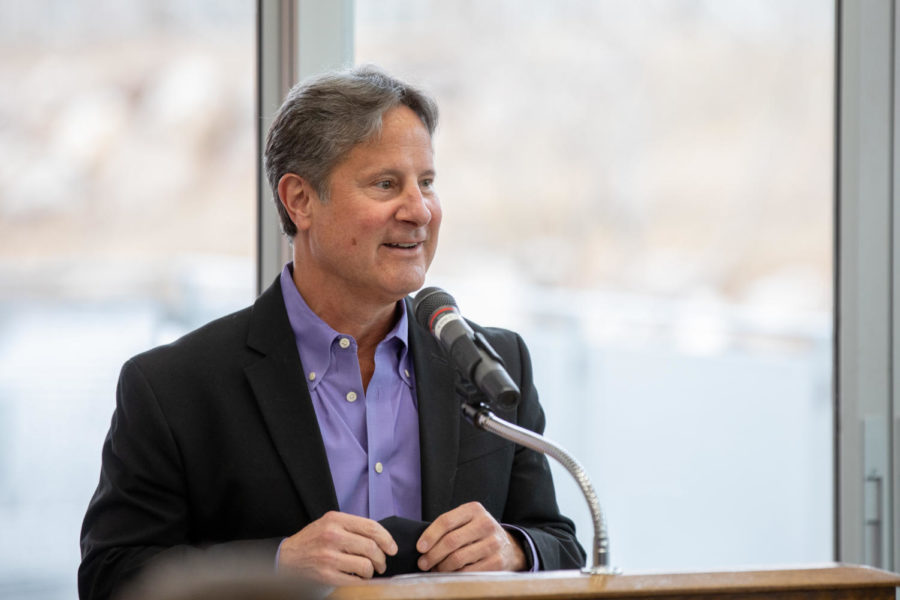
After moving from Jalisco, Mexico to Utah with her family at age 8, Ana Reyes watched her parents work arduously for little pay. She wanted to break the stereotype commonly associated with Latinos.
“Latinos aren’t just a minority group that only work at restaurants,” Reyes, a senior in business multimedia at Weber State, said.
In high school, she dreamed of going to college, but her high school counselor told her that she would not be able to because of her immigration status. Worse, the counselor told Reyes if she did go to college, she would not be able to afford it.
After that experience, when Reyes’ physics teacher asked her if she planned to go to college, Reyes emphatically said “No.”
“He told me, ‘Don’t let anything stop you from going to college,'” Reyes said. “He was the one who pushed me a little bit.”
Reyes came to WSU’s campus to ask for information, and that’s where she found Mónica Rodríguez, multicultural center counselor and adviser for the Hispanic Area Council.
In recent years, WSU has increased its efforts to reach different ethnic groups, and its efforts are reflected in enrollment rates among Hispanics.
According to WSU Institutional Research, the total student enrollment in fall 2010 was 24,048. Hispanic students made up 1,450, which represents 6 percent of the total student population. They were among 10,223 Hispanic students counted that year in eight Utah colleges and universities, according to the The Utah System of Higher Education.

Source: Monica Rodriguez
By last year, the Hispanic enrollment at Weber State had grown to 2,430 or 9 percent of the total student population, the WSU Institutional Research reported. That’s an increase of tw0-thirds.
Rachel Ruiz, an institutional analyst at WSU, said that the numbers count every student enrolled at WSU during the third week of the semester, even if they are just enrolled in one course.
That increase has come in part because of the WSU president’s office. In conjunction with the Center of Diversity and Unity, the president’s office works with different offices and programs to ensure that the Hispanic community, as well as other minority groups, feel welcome and included on campus.
Education Access and Outreach is one of the offices on campus in charge of recruiting students and connecting with the community through its pipeline programs within different school districts like Davis, Weber and Ogden. It also helps undocumented students find their way through the higher education system.
Adrienne Andrews, assistant to the president for diversity, said that these programs were created to encourage access, recruitment and opportunities for Hispanic people, as well as first-generation students, multicultural students and other underrepresented minorities.
Andrews said that the pipeline programs help future students from minority groups to find their way to the university. The programs also help future students to prepare for college, provide campus tours and help students prepare for the ACT and SAT tests, among other services.
That concern continues concerning retention and graduation rates among minority groups like Hispanic students.

Source photo: Monica Rodriguez
Andrews said that the Multicultural Student Center is where students from minority groups can go to get assistance with anything from applying for admission, to finding scholarships and financial aid to stay in school.
The center provides peer mentors and advisers who help with career counseling and one-on-one advising.
The university also sponsors area councils run by students who represent the needs and concerns of their communities and advocate for those communities, including councils for Hispanic/Latinos, Asians, Native Americans, Pacific Islanders and African Americans.
Rodríguez said that it is important for current and future students to know the available resources.
“When students come to the higher educational system, they really don’t understand the system,” Rodríguez said.
For many of their families, the educational system is unknown territory, and when students come to campus, it is as if they are listening to a foreign language.
Rodríguez said that her job as an adviser is to guide, advocate, support, retain and coach students from minority groups, low-income students and first generation students.
As a way of supporting and retaining students, Rodríguez created a ballet folklórico at WSU. The idea behind the ballet was to make Hispanic students feel more represented on campus, but it is open to all students.
Reyes said Rodríguez was the one who told Reyes she could come to WSU even as an undocumented student. The only problem was paying for college.
Reyes said that Rodríguez helped her to apply for scholarships, and because of those scholarships, she was able to enroll for her first semester.
“Everyone should come to college, despite what other people say,” Reyes said. “Hispanics have a lot of talents and leadership skills.”
While Reyes found her way to college through the Multicultural Student Center, other students get to college through other clubs.
Daniel Rubio, a digital video student, said he got to WSU through a scholarship provided by the marching band.
“The Department of Performing Arts came to my high school, and they told me to apply to Weber and to come for an audition with the band,” said Rubio, who plays trombone.
The application process was not as hard as financial aid, Rubio said. He didn’t know who to go to or the resources available to him.
“Sometimes, I think that people don’t understand how hard is for Latinos who don’t have someone that they can rely on to get through stuff,” Rubio said. “I think that’s why some of them don’t finish.”
While WSU’s efforts have helped many Hispanic students, some say the university could do better.
Viviana Felix, a sociology major, said the problem with the programs at WSU is that they help students who are already doing well in school, and they don’t reach out to students who are struggling academically.
Rodríguez confirmed that students who received scholarships through the Multicultural Student Center are in good academic standing, involved with a club or student organization and serve in the community.
Felix said that some Hispanic students did not develop the necessary skills to succeed in college while attending high school, and that is why they struggle.
Felix continued and said that the lack of family support, lack of personal motivation and good use of the resources are some of the reasons why Hispanic students are not starting or finishing college.







